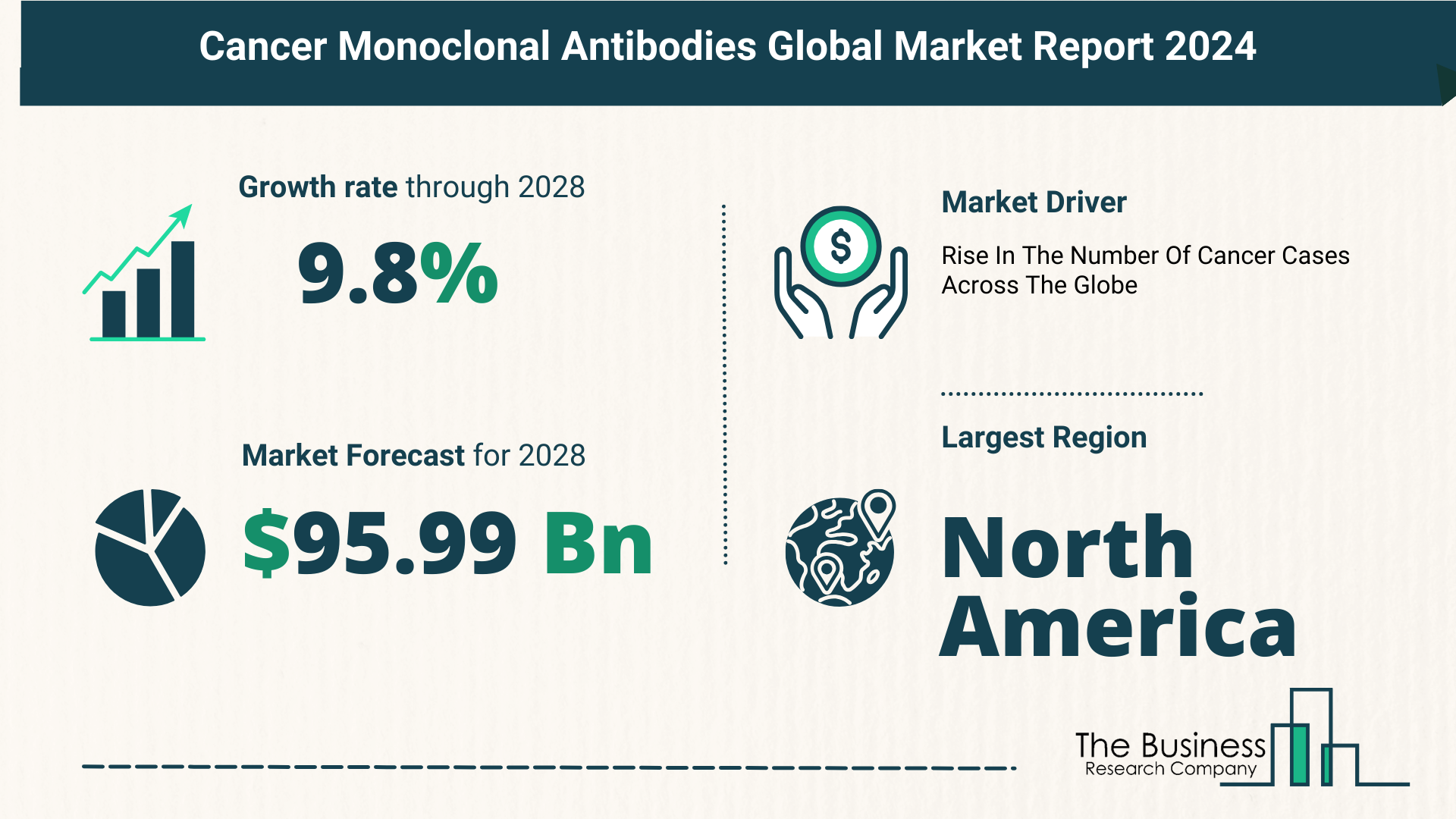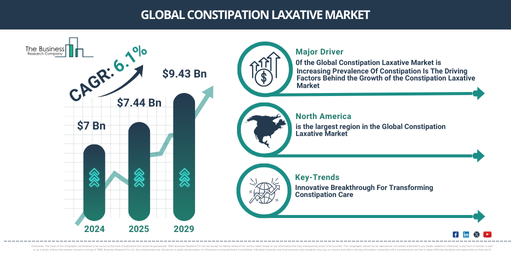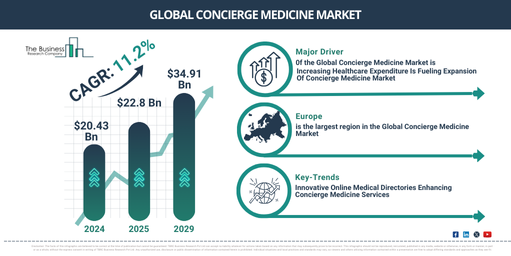Cancer Monoclonal Antibodies Market Growth Analysis Till 2033 By The Business Research Company
The Business Research Company’s market reports offer an in-depth analysis on the market’s growth potential, major drivers, key trends and more.
Exploring the Current and Projected Growth
The cancer monoclonal antibodies market has experienced significant growth in recent years and is poised for further expansion in the coming years. Let’s delve into the key factors driving this growth and the anticipated trends shaping the market’s trajectory.
Current Market Dynamics and Projections
- The market size surged from $59.98 billion in 2023 to $66.1 billion in 2024, marking a notable compound annual growth rate (CAGR) of 10.2%.
- Projected growth anticipates a climb to $95.99 billion by 2028, with a CAGR of 9.8%, fueled by factors such as increasing cancer prevalence and expanding global access to healthcare.
Drivers of Market Growth
Cancer Incidence Rates
The rise in cancer cases globally, including common types like lung, prostate, bowel, and breast cancer, is a significant driver. The surge in cancer diagnoses underscores the need for effective treatments, thus boosting demand for monoclonal antibodies.
Demographic Trends
Factors such as an aging population contribute to the growth of the cancer monoclonal antibodies market. With increasing longevity, the prevalence of cancer among the elderly rises, necessitating advanced treatment options.
Technological Advancements
Innovations in technology play a pivotal role in driving market growth. From product innovation to AI-powered research, technological advancements streamline R&D efforts, leading to the development of more effective therapies.
Read More On The Cancer Monoclonal Antibodies Market Report 2024 – https://www.thebusinessresearchcompany.com/report/cancer-monoclonal-antibodie-global-market-report
Trends Shaping the Future
Product Innovation Through Collaboration
Strategic collaborations among companies are fostering product innovation. These partnerships enable companies to leverage each other’s expertise, leading to the development of breakthrough therapies. For instance, BioNTech SE’s collaboration with OncoC4, Inc., aims to jointly develop and market innovative checkpoint antibodies for cancer treatment.
Expansion of Immunotherapy Portfolios
Strategic acquisitions, such as Pfizer Inc.’s acquisition of Trillium Therapeutics, bolster companies’ immunotherapy portfolios. This acquisition enhances Pfizer’s ability to combat hematological malignancies and solid tumors, reflecting the industry’s focus on expanding treatment options.
Segmentation and Regional Analysis
Segmentation
- Monoclonal Antibody Therapies: Avastin, Herceptin, Keytruda, Opdivo, Darzalex, Perjeta, Others
- Application: Breast Cancer, Blood Cancer, Lung Cancer, Brain Tumor, Colorectal Cancer, Cervical Cancer, Gastric Cancer, Others
- End-User: Hospitals, Research Laboratories, Others
Regional Analysis
North America emerged as the largest region in the cancer monoclonal antibodies market in 2023. This underscores the region’s significant contribution to market growth and innovation.
Conclusion
The cancer monoclonal antibodies market is witnessing robust growth, driven by rising cancer incidence rates, demographic shifts, and technological advancements. Collaboration and innovation will continue to be key strategies for companies seeking to address the evolving needs of patients and healthcare systems worldwide. As the market expands, it holds promise for delivering more effective and personalized treatments, ultimately improving outcomes for cancer patients globally.
Request for A Sample Of The Global Cancer Monoclonal Antibodies Market Report:
https://www.thebusinessresearchcompany.com/sample_request?id=3451&type=smp



